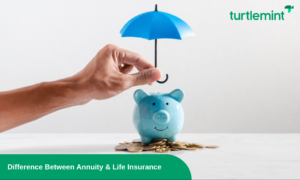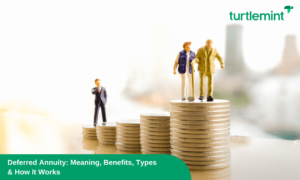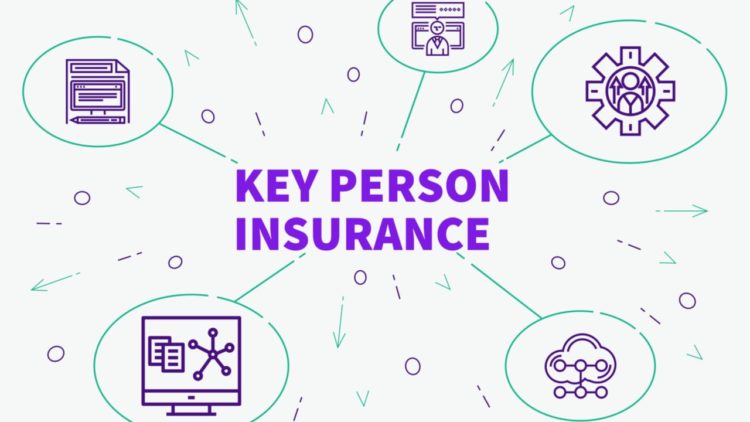
Businesses do not run themselves. They need experienced and skilled individuals to plan, execute and implement business decisions so that the business can grow. In fact, the expertise and the intrinsic talent of an individual can act as the key to the success of the business. In such cases, if the key employee who is responsible for the growth of the business dies, the business faces substantial loss.
The business loses the technical knowhow and skill of the employee which helped its growth. Moreover, hiring another individual to replace the deceased also involves considerable expenses. To cover this loss suffered by the business, Keyman insurance policy is available in the market. Let’s understand what the policy is all about –
Table of Content
- What is Keyman insurance?
- How does Keyman insurance work?
- Eligibility criteria for the employee to be covered
- Sum assured under Keyman insurance policy
- Tax implications of Keyman insurance policy
- Benefits of Keyman insurance policy
- Drawbacks of Keyman insurance
- Things to remember about Keyman insurance
- How to buy Keyman insurance?
- Frequently Asked Questions
What is Keyman insurance policy?
Keyman insurance is a life insurance cover which is taken by an employer on the life of its employees. The employer is the policyholder as well as the one responsible for paying the premium. The employee is the life insured. If the employee dies during the term of the policy, the employer receives a death benefit which compensates the employer for the financial loss suffered due to the death of the key employee. The employee covered under a Keyman insurance policy should be the key employee of the business who is instrumental for the success of the business.
How does Keyman insurance work?
The business might decide to buy a Keyman insurance policy on its key employees. Only term insurance plans can be bought under Keyman insurance. The term of the policy is such that the policy expires when the employee retires. So, if the employee is aged 35 years when the policy is being bought and the retirement age is 65 years, the term of the policy would be 30 years. Alternatively, if the employee has a fixed employment term, the term of the Keyman insurance policy matches the employment tenure of the employee. If the employee dies during the term of the policy, Keyman insurance policy pays a death benefit to the employer. If, on the other hand, the policy matures, no benefit is paid as it is a term insurance plan.
Eligibility criteria for the employee to be covered
An employee is considered to be a Keyman if he/she fulfils the following eligibility parameters –
- The employee holds less than 51% of the stake in the company in which he/she is employed
- The aggregate shares held by the employee and his/her family members should not be more than 70% of the total share capital of the company
- The role of the employee should be provided and it should be proved that such role is critical for the business
Sum assured under Keyman insurance policy
The coverage amount for Keyman insurance policy is determined to be the lowest of the following –
- 10 times the annual package of the employee
- 3 times the average gross profit that the company has earned in the last three years
- 5 times the average net profit that the company has earned in the last five years
Tax implications of Keyman insurance policy
There are different types of tax implications of a Keyman insurance policy on the premiums paid as well as on the benefits received. Let’s understand these implications for the employer as well as for the employee in details:
Tax implications for the employer:
On the premiums paid
The premium paid for buying a Keyman insurance policy is considered to be a business expense. This expense is allowed to be deducted from the taxable profits of the company under Section 37 (1) of the Income Tax Act. This deduction, therefore, lowers the taxable profits of the company and reduces its tax liability.
On the death benefit received
The death benefit received by the company in case of death of the insured employee is fully taxable. The benefit is considered to be an income in the hands of the company and it is taxed as per the company’s tax slab rates. The exemption benefit under Section 10 (10D) is not available under Keyman insurance.
Tax implications for the employee:
On the premiums paid
The premium paid by the employer is not considered to be a taxable perquisite in the hands of the employee as per Section 17 (2) of the Act. Thus, the employee incurs no tax liability on the premiums paid.
On the death benefit received
Since the death benefit is not received by the employee or his dependents, there is no tax liability. However, if the Keyman insurance policy is assigned to the employee when he quits the employer, the employee becomes the owner of the policy. The employee, then, nominates an individual to receive the policy benefits in case of his/her death. In this case, the death benefit is paid to the employee’s nominee. This death benefit would be taxable. No tax benefit would be allowed under Section 10 (10D).
Benefits of Keyman insurance policy
A Keyman insurance policy is considered to be very beneficial for the business because of the following reasons –
- The policy helps businesses face the financial loss incurred in case their key employees die prematurely
- The policy gives a boost to the morale of key employees as their importance is outlined through the Keyman insurance cover on their lives
- The price of the company’s stocks do not fluctuate wildly when the company has a back-up plan in the form of Keyman insurance even in case of death of its key employee
- The premium paid for a Keyman insurance policy is considered a business expense. Businesses can claim tax benefits on such expenses
- If the business has availed loans on the key employee’s guarantee, the death of the employee would result in substantial liability in the hands of the business. The policy proceeds of a Keyman insurance policy can help the business meet such liabilities and avoid a financial crisis
- If the company is being acquired by another company, the valuation of the company would be higher if it has a Keyman insurance policy covering the risk of premature death of its key employees
Drawbacks of Keyman insurance
Though a Keyman insurance policy is very beneficial, there are some drawbacks of the policy too. These drawbacks include the following:
- Since the death benefit is taxable, the company has to part with a considerable amount of benefit towards tax. This reduces the effective benefit received by the company for the loss of its employee
- Only term insurance plans are available under Keyman insurance which might not be suitable for every business
Things to remember about Keyman insurance
Here are some important things which you should remember about Keyman insurance policy –
- The company cannot choose riders under the plan
- The nominee of the policy would be the employer who is also the policyholder
- Loans cannot be taken under Keyman insurance plans
- The employee is neither required to pay the policy premiums nor does he/she receive any death benefit
How to buy Keyman insurance?
Businesses which want to buy a Keyman insurance policy would have to approach an insurance company and propose for insurance. The company would assess the insurance requirement of the business and offer coverage under Keyman insurance.
Businesses would have to submit the following documents to avail the policy –
- Copies of the Memorandum of Association and the Articles of Association of the company
- Copies of the audited financial records of the company of the last three financial years. The records include the Profit and Loss Account and the Balance Sheet
- A certified true copy of the board resolution which has been passed in a meeting of the Board of Directors of the company. The resolution should contain the following details:
- The required sum assured
- Name and signature of the employer who is authorised to act as a proposer for insurance and fill up the proposal form
- The seal of the company
- Copies of the income tax returns of the business of the last three financial years
- A consent by the company to place an endorsement on the insurance policy
- A keyman questionnaire should be filled and attached to the proposal form. The questionnaire should be signed by the proposer
A Keyman insurance policy protects the financial interests of the business if its key employee dies prematurely. Though the policy cannot replace the loss of skill, it can provide the business with the funds to deal with the loss and replace the employee with another. A Keyman insurance policy is, therefore, important and should not be ignored.
Frequently Asked Questions
- What would happen if the keyman, on whose life the policy has been bought, quits the company?
If the employee quits the company and Keyman insurance policy is in force, the employer has the following four options-
- The employer can stop premium payments and let the policy lapse
- The employer can assign the policy in the name of the employee
- The company can continue the policy and avail the claim as to and when it falls due
- The employer can transfer the Keyman insurance policy to the new employer on mutually agreed upon terms and conditions
- Which companies cannot buy Keyman insurance?
Companies which are making a loss cannot buy a Keyman insurance policy.
- Can I buy unit-linked plans under Keyman insurance?
No, only term insurance plans are allowed to be bought under Keyman insurance.
Found this post informational?
Browse Turtlemint Blogs to read interesting posts related to Health Insurance, Car Insurance, Bike Insurance, and Life Insurance. You can visit Turtlemint to Buy Insurance Online.



